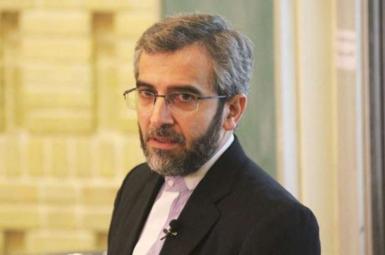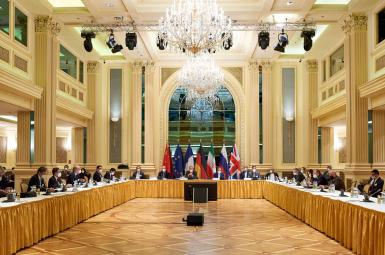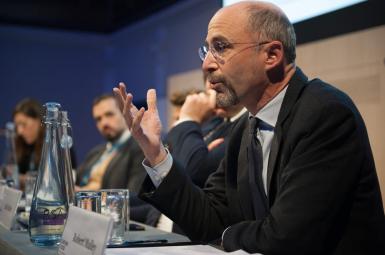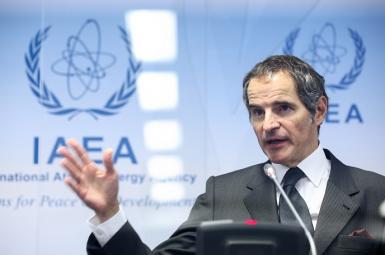
France Warns Over May 21 Deadline On UN Access To Iran Nuclear Sites
France expressed a sense of urgency – and perhaps a little frustration – over the Vienna talks where world powers are working to revive Iran’s 2015 nuclear deal, the JCPOA (Joint Comprehensive Plan of Action).
The French foreign ministry pointed out Tuesday that only a short period remained before the May 21 expiry of a temporary arrangement on access of international inspectors to Iran’s nuclear program. The French said further contacts might be needed between the International Atomic Energy Agency (IAEA) and Tehran to extend the accord, which was reached in February.
The same point was made Monday by Iran’s foreign ministry spokesman Saeed Khatibzadeh, possibly reflecting a growing sense that the substantive Vienna talks may not reach agreement by May 21. Khatibzadeh said Iran might agree to extend the access arrangement if Vienna was on “the right path.”
Diplomats in Vienna are examining which sanctions the United States needs to lift and which steps in Iran’s nuclear program should be reversed to put back in place the JCPOA, from which President Donald Trump withdrew the US in 2018 before setting an intricate set of draconian sanctions. Matters are complicated by how to relate, or ‘sequence,’ the two processes, and by speculation that the US might agree to interim measure like ‘allowing’ the release of Iranian assets frozen abroad.
IAEA access to Iran’s atomic facilities currently takes place under the terms of a three-month scheme agreed in February with Rafael Marino Grossi, the IAEA head. Once the scheme expires, the agency’s access would be at the basic level required under the Nuclear Non-Proliferation Treaty.
Formal talks in Vienna are between the remaining signatories of the JCPOA – China, France, Germany, Iran, Russia and the United Kingdom. But there has been inevitable focus on the ‘indirect’ participation of a US delegation led by special envoy Robert Malley.
As one of the ‘E3’, the three European signatories of the deal, France has consistently supported the JCPOA but sometimes in the past showed frustration at being side-lined. Representatives of the E3 met Abbas Araghchi, Iran’s lead negotiator and deputy foreign minister, Monday evening, but it is unclear if anything emerging from that meeting led to Tuesday’s statement.








